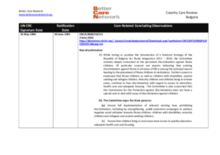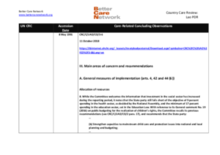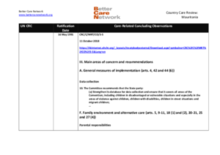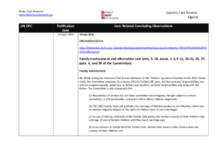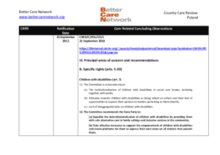Displaying 261 - 270 of 661
This study aimed to understand the experience of adoptive parents who have completed dyadic developmental psychotherapy (DDP) therapy.
This country care review includes the care-related Concluding Observations adopted by the Committee on the Rights of the Child and the Committee on the Rights of Persons with Disabilities.
This country care review includes the care related Concluding Observations adopted by the Committee on the Rights of the Child as part of its examination of Lao PDR's initial reports, as well as other care-related concluding observations, ratification dates, and links to the Universal Periodic Review
This country care review includes the care-related Concluding Observations adopted by the Committee on the Rights of the Child.
This country care review includes the care related Concluding Observations adopted by the Committee on the Rights of the Child as part of its examination of Mauritania's initial reports, as well as other care-related concluding observations, ratification dates, and links to the Universal Periodic Review.
The current study examined how discrimination relates to adjustment outcomes in a sample of internationally, transracially adopted Korean Americans from the Minnesota Sibling Interaction and Behavior Study.
This paper summarises how genetically-informed research designs can help disentangle genetic from environmental processes underlying psychopathology outcomes for children, and how this evidence can provide improved insights into the development of more effective preventative intervention targets for adoption and foster-care families.
The article presents the findings of an international literature review conducted to examine the factors that drive inter‐country adoption rates within both sending and receiving countries.
This country care review includes the care-related Concluding Observations adopted by the Committee on the Rights of the Child and the Committee on the Rights of Persons with Disabilities.
This country care review includes the care related Concluding Observations adopted by the Committee on the Rights of the Child and the Committee on the Rights of Persons with Disabilities.

